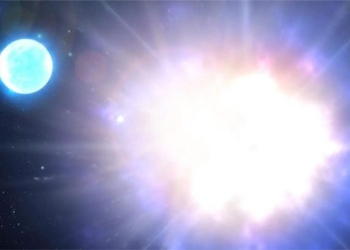According to a study on mice, exposure to cosmic radiation and weightlessness may increase the risk of astronauts developing erectile dysfunction.
A new study on mice shows that space exploration can raise the risk of astronauts experiencing erectile dysfunction.

Astronauts are exposed to weightlessness and significantly higher levels of cosmic radiation than on Earth, which may impact their long-term sexual health. (Photo: Nisian Hughes via Getty Images).
According to a new study published on November 22 in the FASEB Journal, in laboratory experiments, male mice exposed to simulated galactic cosmic radiation (GCR) and weightlessness exhibited a decline in erectile tissue function in the penis.
These effects were observed even after a recovery period of one year. This suggests that deep space exploration could have lasting effects on astronauts’ health.
With crewed missions into space planned for the coming years, “this work indicates that sexual health needs to be closely monitored in astronauts when they return to Earth,” said senior co-author Justin La Favor, an assistant professor of vascular neurophysiology at Florida State University, USA.
As the space industry prepares to send astronauts on missions around the Moon as early as 2024 and to Mars by 2040, there is increasing attention on the potential long-term impacts of deep space exploration on the human body. In such missions, astronauts will face weightlessness due to low gravity in space as well as high levels of GCR.
Weightlessness is associated with various adverse health effects, although the impacts on erectile function have not been previously studied.
In the future, the researchers aim to delve deeper into the precise causes of the observed effects and explore ways to prevent them. They noted that female astronauts will also participate in upcoming missions, making it essential to investigate the potential effects of deep space exploration on the sexual function of female astronauts.





















































